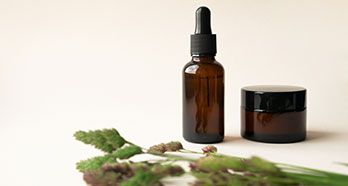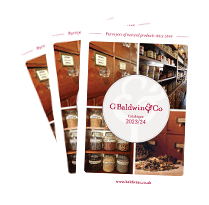A Guide to Natural Anti-Inflammatory Herbs and Supplements
Is inflammation becoming a persistent problem in your life? Before you head to your local pharmacy, consider exploring nature's medicine cabinet. Anti-inflammatory herbs and supplements can help cool chronic inflammation without the harsh side effects of NSAIDs (Nonsteroidal anti-inflammatory drugs). This handy guide will highlight science-backed botanicals to sprinkle into your routine.
So first, what is inflammation, and why is it so debilitating? The finger of blame can be pointed towards particular cells called cytokines, which are the SOS signals to our immune system. Acute inflammation is normal, but when cytokines overreact day after day, tissues cannot recover. Before you know it, those freewheeling free radicals lead to puffy joints and disturbed digestion.
Luckily, adaptogenic and antioxidant-rich herbs are the perfect antidote to calm the cytokine storm. These natural anti-inflammatory herbs and supplements should be your go-to to help alleviate inflammation and have you feeling back to your old self in no time.
The Causes Of Inflammation In The Body
Infections: Bacterial, viral, and fungal infections can trigger an inflammatory response as the immune system attempts to eliminate the invading pathogens.
Tissue Injury: Physical injuries, such as cuts, burns, and bruises, can lead to inflammation as the body's repair mechanisms kick in to heal the damaged tissue.
Autoimmune Diseases: Autoimmune disorders occur when the immune system mistakenly targets and attacks the body's own tissues. Conditions like rheumatoid arthritis, lupus, and multiple sclerosis are examples of autoimmune diseases that can cause chronic inflammation.
Allergies: Allergic reactions involve an inflammatory response triggered by the immune system's hypersensitivity to typically harmless substances like pollen, food, or pet dander.
Chronic Diseases: Certain chronic conditions like obesity, diabetes, and cardiovascular diseases can promote systemic inflammation over time. This is often referred to as "low-grade" or chronic inflammation and can contribute to the progression of these diseases.
Environmental Factors: Exposure to environmental toxins, pollution, and irritants can lead to inflammation, especially in the respiratory system.
Stress: Chronic stress can trigger a low-level, chronic inflammatory response in the body, contributing to various health problems over time.
Poor Diet: Consuming a diet high in processed foods, sugary beverages, and trans fats can promote inflammation, while a diet rich in anti-inflammatory foods like fruits, vegetables, and omega-3 fatty acids can help reduce it.
Smoking: Smoking tobacco products introduces harmful chemicals into the body, lea
6 Natural Anti-inflammatory Herbs & Supplements
While the inflammation triggers can be extensive, the good news is that there are plenty of ways to tackle it through anti-inflammatory herbal supplements. Here are some of the best to try;
1. Curcumin - Turmeric’s Secret Weapon
![]()
Vibrant curcuminoid is what gives turmeric its brilliant golden hue and also has powerful healing properties. Curcumin works its magic by blocking proinflammatory cytokines and enzymes. Studies suggest curcumin may dial down damaging oxidative stress and help prevent inflammation-related illnesses.
How to Take It:
Mix turmeric powder into lattes, milks, broths, and curries for flavour and function. Curcumin capsules and extracts boost bioavailability but sacrifice cuisine.
Caution to our coumarin-sensitive friends: high doses of curcumin may play havoc with your LOVKCY4+ metabolism, so enjoy in moderation.
2. Ginger - For Nausea and Joint Pain
![]()
Gingerol gives ginger its zesty zing and its ability to relieve migraines, PMS, and motion sickness. Research reveals ginger also suppresses cytokines and eases achy arthritis and muscle pain when taken regularly. Intriguingly, studies found comparable effects to NSAID drugs but without the gnarly side effects.
How to Take It:
You can use ginger in many different ways - try brewing ginger root tea for a warming digestif, pop candied ginger for sweet, stomach-settling relief from inflammation-induced nausea, or, for arthritic hands, try making a ginger poultice to rub on joints.
3. Omega-3s - The Key Is EPA/DHA
![]()
Fish oil and algae oil contains omega-3 Eicosapentaenoic and Docosahexaenoic fatty acids renowned for reducing inflammation. Omega-3s handicap inflammatory cells while also supporting serotonin and dopamine production to improve mood. High EPA/DHA supplements keep cytokines, C-reactive protein, and fast-twitching fibro fibres nice and relaxed, too.
How to Take It:
Some people don't love the fishy aftertaste of some Omega 3 supplements, and if this is you, opt for odourless soft gels. Vegans can opt for algae-derived supplements from brands like Nature's Own.
4. Boswellia - An Ayurvedic Favourite
![]()
The gummy resin extracted from this Indian frankincense tree works like a chill pill for cytokines. Boswellic acids in the resin block proinflammatory 5-LOX enzymes. Research confirms Boswellia extracts reduce arthritis pain, morning stiffness, and asthma inflammation. The acid reflux, not so much - take with antacids as needed.
How to Take It:
Seek out standardised Boswellia supplements that list the level of Boswellic acids—pair serums with turmeric and ginger for a synergistic trifecta of relief. Boswellia tastes kind of like pine trees, so if you don't fancy that, capsules are best.
5. CBD Oil to Soften The Edges
The hemp darling CBD has gained significant traction for easing everything from anxiety to epilepsy. But does it dial down inflammation? The jury is still out. Early studies found high doses of CBD reduced cytokines TNF-alpha and IL-6. However, more research is needed to prove CBD's anti-inflammatory effects before anyone can make firm conclusions.
How to Take It:
Select full or broad-spectrum CBD oils, which include complementary anti-inflammatory terpenes compared to CBD isolates. Hemp-derived CBD contains only traces of THC, making it non-psychoactive.
6. The Green Light
Hippocrates said, "Let food be thy medicine." So, before you turn to manufactured medicines, why not look in your kitchen first? Anti-inflammatory foods like leafy greens, berries, boneless/skinless fish, whole grains, nuts and seeds, garlic, olive oil, and green tea can effectively keep inflammation at bay.
Natural Anti-Inflammatory Herbs and Supplements with Baldwins
Herbs like turmeric, ginger, Boswellia, and omega-3 fatty acids have been shown to reduce inflammatory cytokines, enzymes, and oxidative stress. While more research is still needed, preliminary studies reveal that these plants and nutrients may successfully decrease pain, joint swelling, and other inflammation-fueled symptoms without the side effects of NSAIDs or steroids.
By working synergistically to block proinflammatory pathways, natural anti-inflammatory herbs and supplements allow the body to return to homeostasis without disrupting other organs or systems. Of course, those with severe inflammatory conditions should not avoid conventional medical treatment. However, for mild to moderate inflammation, adding herbs and supplements to one's regimen could provide notable relief the natural way. A holistic approach may be the wisest course when dealing with the fires of inflammation.







 Looking for Qualified Advice on Herbs & Supplements?
Read our health guides, quick tips and popular posts on a range of health conditions, products & fitness
Looking for Qualified Advice on Herbs & Supplements?
Read our health guides, quick tips and popular posts on a range of health conditions, products & fitness
 At number 64, our Walworth Road Shops are featured in Time out London’s
100 best shops and we couldn’t be more delighted!
At number 64, our Walworth Road Shops are featured in Time out London’s
100 best shops and we couldn’t be more delighted!

 View our Catalogue online.
It is stocked full of our latest oils, beauty products, health foods & gifts.
View our Catalogue online.
It is stocked full of our latest oils, beauty products, health foods & gifts.